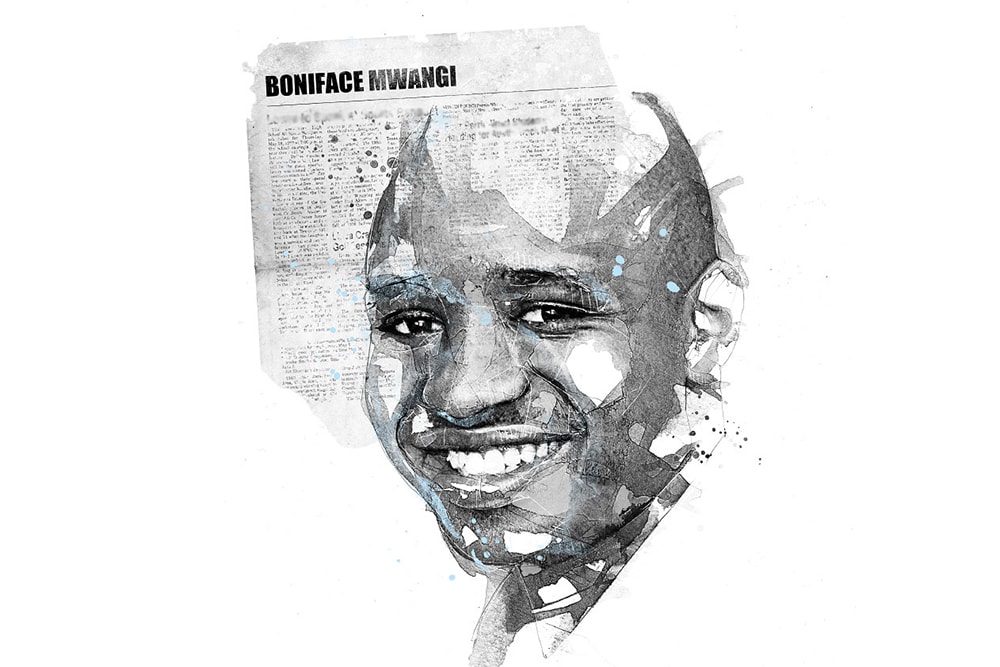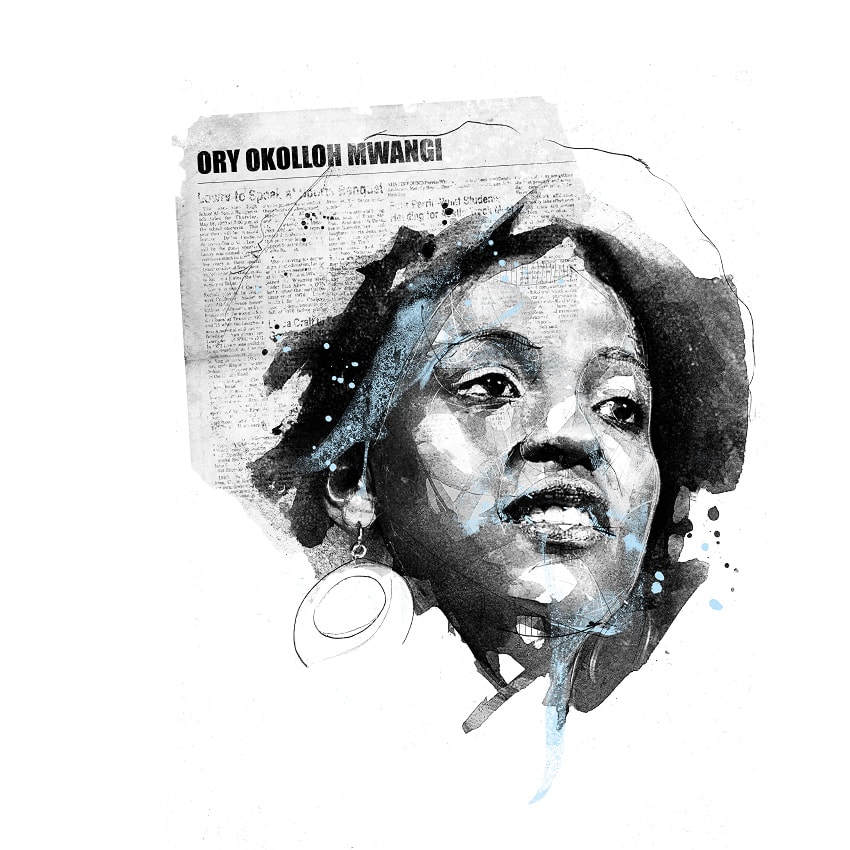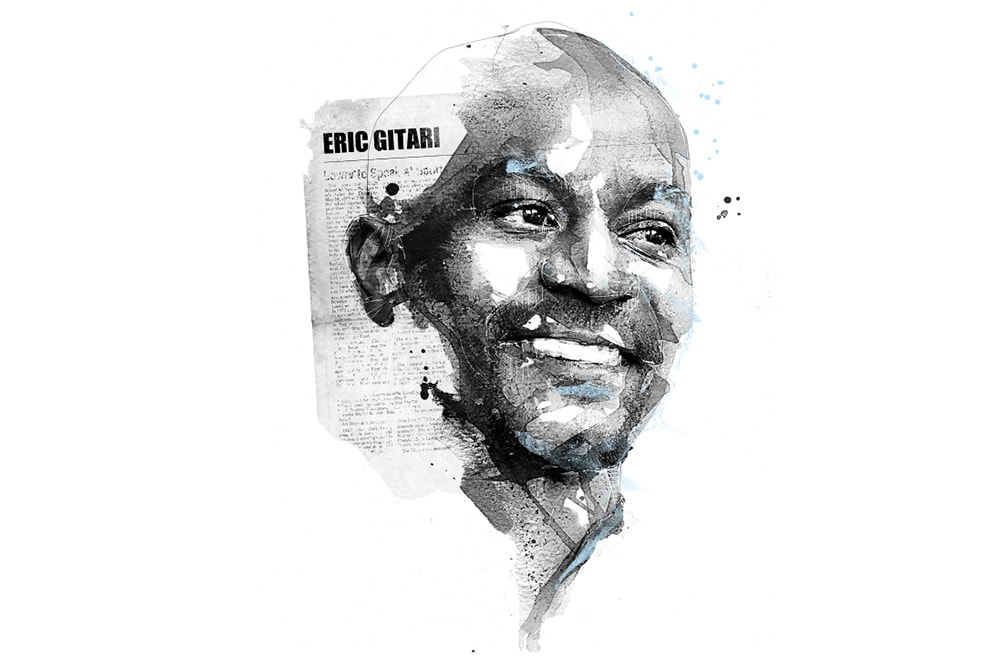Photojournalist-turned-activist-turned-politician Boniface Mwangi has been described as Kenya's most popular leader in the fight against government corruption and injustice.
"I've seen things that most people have never seen, and I have a responsibility not to be silent about it"
Despite being kicked out of school at age 15, Boniface Mwangi was a voracious reader. This allowed him to write college entrance exams, earning him admission into journalism school. He began his career in 2005 as a photographer for a Kenyan daily newspaper, and went on to win several national and international awards – notably the CNN Multichoice African Photojournalist of the Year Award in 2008 and 2010.
There was a very specific turning point in Mwangi’s life and career: the events around Kenya’s 2007 election. The results were hotly contested, prompting unprecedented violence that resulted in the death over 1,100 people and the displacement of 600,000 others. During this time, Mwangi documented horrific scenes, including women who were raped by police and children who were murdered. He was profoundly affected by this experience, experiencing nightmares and suicidal thoughts.
He believed that politicians had incited people to commit violence along tribal lines throughout their campaigning, and that the police were perpetrators, but nobody was talking about it. He eventually quit his job, out of frustration and anger. As he noted in a 2015 interview: “I was at the point where my response was, essentially, how do you bring down the government?”
Mwangi spent months with friends planning to call out President Mwai Kibaki during a live broadcast speech, but on June 1, 2009, the day of the speech, his friends didn’t show up. He was afraid, but proceeded as planned, standing up and shouting that the president had to remember the post-election victims. He was beaten by police, put in jail overnight, and spent the next year in a court battle, experiences he has shared in a TED talk.
After that, Mwangi began to use his photography as a vehicle for social change. That same year, he founded a project called Picha Mtaani where he travelled the country, exhibiting his photographs of the election. These events were intended to prompt reflection, dialogue and community reconciliation. Mwangi believes that politicians paid people to demolish his exhibitions, leading to violent disruptions, arrests, and the seizure of his photographs by police.
In 2011, Mwangi founded PAWA254, a hub and coworking space in Nairobi for journalists, artists and activists to collaborate on social change projects. It also provides free training for artists and youth to build skills to amplify their voices. The walls of the space are decorated in graffiti portraits of leaders including Martin Luther King Jr and Malcolm X, alongside their inspirational quotes.
Mwangi continues to call out political corruption and injustice in Kenya. And, as a photojournalist turned activist, he knows how to attract the media. He believes that a certain shock factor is essential, since he doesn’t have a budget for newspaper ads or billboards. For example, in 2012 he left mock coffins at Parliament to symbolise the burying of impunity. In 2013, when politicians wanted to increase their salaries, Mwangi organized a demonstration where he brought pigs covered in blood to Parliament to represent politicians bleeding taxpayers dry.
On 13 February 2020, the day of former president Daniel Arap Moi’s funeral, when tributes of praise were pouring in from everywhere, Mwangi went on social media and proferred a more truthful portrayal: describing him as a thief, murderer and dictator.
In November 2016, Mwangi announced a move into politics, with the goal of changing the political system from within. He formed the Ukweli (Swahili for “truth”) party, and campaigned for a seat as a Member of Parliament in the 2017 election. Mwangi was unsuccessful in his bid, but was widely commended for running an ethical campaign. While some politicians in Kenya give cash handouts to their supporters, Mwangi asked his for donations – and they kept giving, even when he lost the vote.
His entry onto the political landscape is featured in an award winning film called “Softie”. The docudrama takes a deep look at the fire that fuels Mwangi to push for change. It explores the complexities of running a clean campaign against opponents who are corrupt and it deals with the critical question: Should country really come before family, as he has always believed?
There has been a significant cost to his courage and outspokenness. Mwangi is routinely criticised for being anti-Kenyan and there have been accusations that he is backed by Western donors who want to destabilize Kenya’s government. His activism has placed him on the receiving end of police brutality and death threats. “I can’t be out alone late at night. I am constantly looking over my shoulder. When working late or hanging out with friends, l must ensure I am with trusted company. I cannot speak freely on my phone,” he shared. “Routinely, supportive friends with access to info will send me information shared by people who have been paid to spy on me. In spite of these chilling reports, I refuse to be intimidated into silence. I refuse to be paralysed by fear.”
In 2017, for the first time, the death threats included his family. Mwangi has three children, and his wife Hellen Njeri Mwangi works alongside him. He has criticised Kenyan police for not investigating these threats, even when he provided them with proof.
In 2016, Mwangi published his memoir, Unbounded, which uses photography to convey the stories of the people and events that have inspired him. “As much as I’d like to be normal, I am not normal,” he said in an interview. “There are two most powerful days in your life. The day you are born, and the day you discover why. That day standing up in that stadium shouting at the president, I stood up in the stadium, I discovered why I was truly born. That I would no longer be silent in the face of injustice.”
In the last few years Mwangi has focused solely on his activism. In recent months Mwangi has spoken out critically against reckless driving by Kenyan VIPs and government officials. In January 2020, the activist blocked a motorcade driving on the wrong side of the road. He parked his car across the road and refused to move forcing the driver of the member of parliament to follow traffic.
Mwangi’s supporters and critics would agree on one thing: he certainly isn’t keeping silent.
Illustration by Florian Nicolle


